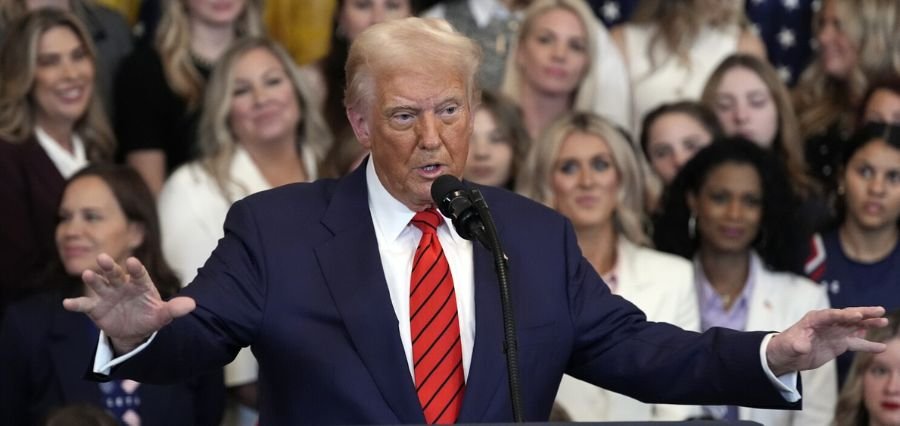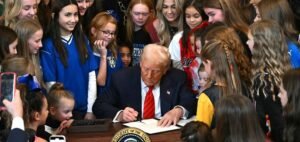Prime Highlights
- The Trump administration banned transgender women from getting U.S. sport visas if they had competed in women’s sporting events.
- The move extends domestic sport bans to global athletes, affecting immigration classes for outstanding ability.
Key Fact
- Visas like O-1A and EB-1 will now reject applicants who competed as transgender women in women’s sport events.
- Immigration authorities condone such competition as a disqualification under “exceptional ability” requirements for women’s sport.
Key Background
The Trump administration has extended its attack on transgender participation in women’s athletics to immigration policy too. Transgender female competitors who apply for visas to compete in the United States will be automatically excluded from entry if they have participated in women’s events, as per the newly revised directive released by the U.S. Citizenship and Immigration Services (USCIS).
The action follows the signing of Executive Order 14201 in the early part of this year, which bars transgender girls and women from female athletic teams in any federally funded school. The order, “Keeping Men Out of Women’s Sports,” was met with large-scale criticism but also invited other organizations like the NCAA and the U.S. Olympic and Paralympic Committee (USOPC) to do the same with their policies.
USCIS has now clarified that visa categories such as O-1A (for people of exceptional ability in athletics), EB-1, EB-2, and national interest waivers will look at the “authenticity” of women’s sporting achievement on the basis of sex assigned at birth. If an athlete has competed as a trans woman in women’s categories, that would be turned against her for immigration advantage on the basis of sport.
Legal commentators predict harsh challenges to the new policy on constitutional and civil rights principles. The advocacy group argues that gender identity-based admission denial violates equal protection and immigration statutes. Most individuals view the action as the first overt use of immigration policy to set gender-based restrictions in sports.
Such a step would have a significant effect on international sporting events hosted in the U.S., potentially excluding elite trans athletes. In response to pending lawsuits, the policy of the administration could soon be tested in federal courts with international controversy ensuing after inclusion, equity, and sport qualification.
Read more : Nigeria’s D’Tigress Make History with Fifth Straight Women’s AfroBasket Title




